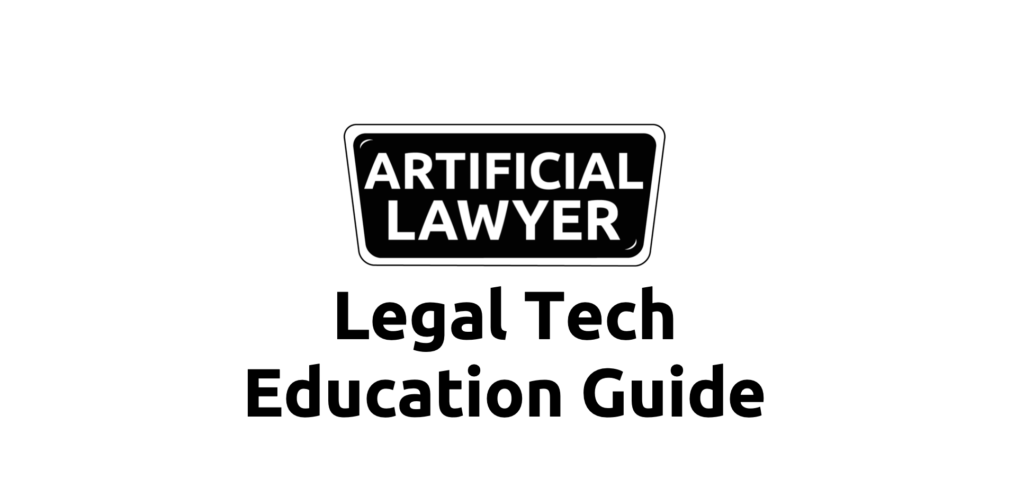
For some years a regular conference theme has been ‘there’s not enough legal tech education’ – now, the law schools and universities have heard the message. Today there are a growing number of legal tech courses at graduate and undergraduate level.
The University of Law in the UK, for example, as well as providing a host of postgraduate qualifications in legal technology is also offering an LLB (Hons) Law with Legal Innovation and Technology degree.
This provides: ‘…in addition to studying key legal topics, you will also study modules on Legal Innovation and Legal Technology. The course covers area of law such as artificial intelligence, blockchain, marketing, business psychology, and process analysis.’
While the BPP law school, also in the UK and from which many City law firms take students, is now offering a Legal Practice Course (LPC), including a Legal Technology Innovation and Design module.
It says about the new approach: ‘Legal technology is disrupting the delivery of legal services. So your legal training needs to stay one step ahead.
Developed in close collaboration with law firms, the Legal Technology Innovation and Design optional module will introduce you to the innovation and project management skills desired by legal recruiters:
- Understanding legal technology, including AI, Blockchain, Big Data, and Automation
- Develop project management skills and techniques
- Learn skills to design technology that responds to problems
- Engage in design thinking and process mapping vital in the legal workplace
- Learn how to communicated innovation ideas with specialists, colleagues and clients.’
And, that’s just the beginning. If you look around the US there are an increasing number of courses also available. From the Suffolk University Law School that offers a Legal Innovation & Technology Certificate Programme, to Vanderbilt Law School’s course on Legal Project Management.
In Europe there are legal tech and related courses provided by centres such as the University of Helsinki School of Law, which offers tech-related courses, as well as on Legal Design, while IE Law School in Spain is offering a Masters in Legal Tech qualification.
The list goes on and there are too many to mention here. In fact there are so many that Artificial Lawyer now has an expanded and free to access Legal Tech Education Guide, (see main site menu), which is growing steadily as more educational establishments send in news of their courses.
What this shows is that although the legal education market may have been initially a little slow to adjust to demand, it now appears to be getting fully up to steam, at least at certain key universities and law schools.
Of course, there are a lot of law schools around the world and the majority still probably don’t offer dedicated legal tech courses or modules. But, if you’re a student or professional who wants to get some additional education, there are certainly a wide range of courses now to meet a lot of your needs. And that’s a very positive change in what is a relatively short time.
Will this all have an immediate impact? It could. Some of the post-graduate courses are a year long. A professional in a law firm or inhouse team could do this and then head back to the office with a new perspective and help to change how things are done. Students who will soon be practising lawyers can now experience several modules on legal technology before they even arrive at a law firm. Some firms are also working with law schools directly to make sure students get the right legal tech education and experiences before they even start full-time work at a law firm.
Is this enough..? There could always be more. But this is a great start and a very different picture to how things were just a few years ago. It all bodes well.
All of this combines with a proliferation in ‘innovation’ roles at law firms, legal ops professionals in inhouse teams and, of course, the actual use of more strategic technology in a legal setting, from working with machine learning systems, to building expert systems, to really using doc automation on a significant scale. And that’s just the start of it. There’s more firms focusing on design thinking, really analysing their processes, and seeking to make better use of the talent they have. All in all, this is driving efficiency and bringing to life an improved approach to the delivery of legal services.
–
If you have a legal tech course, and it’s not already listed in the Artificial Lawyer Education Guide, please drop this site a line and we will try and include it.
Artificial Lawyer would also be interested to hear from any students, undergraduate or graduate, who have taken these courses and would like to share their experiences.

2 Trackbacks / Pingbacks
Comments are closed.